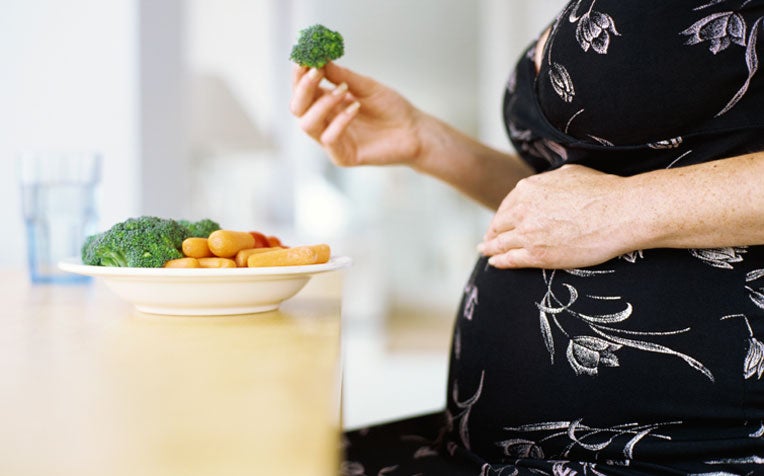
Pregnancy Are some foods necessarily good or bad for your baby?
Ms Kellie Kong, Dietitian from the Department of Nutrition & Dietetics at KK Women’s and Children’s Hospital (KKH), a member of the SingHealth group, comments on more Singapore pregnancy food myths and clarifies misconceptions regarding what to eat during pregnancy.
Singapore pregnancy food myths (continued)
Myth #13: I shouldn't drink coffee when I'm pregnant because caffeine prevents iron absorption.
Fact: Actually, iron absorption is not inhibited by the caffeine but by the tannins and polyphenols present in coffee and tea. Hence, decaffeinated coffee and tea can also inhibit iron absorption. You should limit yourself to 2 cups of regular or decaffeinated tea or coffee a day during pregnancy and consume them in-between your meals rather than with meals to reduce the negative impact of coffee and tea on iron absorption.
Myth #14: Preserved, canned and frozen foods are not safe during pregnancy.
Fact: Generally, it is best to eat foods cooked from fresh ingredients for optimum nutrients, flavour and taste. Water-soluble vitamins such as vitamin C and folate are lost during the canning process. However, nutrient losses are generally small in the case of frozen foods.
Preserved, canned and frozen foods can be safely consumed during pregnancy so long as these food safety guidelines are followed:
- Dried and preserved foods:
- Choose dried and preserved foods that are properly packaged.
- Once the packaging is opened, transfer the unused portion in air-tight containers and keep it in the refrigerator.
- Canned foods:
- Check cans for leakage, bulges, rust or dents.
- Although there are some concerns about the safety of bisphenol A (BPA) found in the lining of cans, occasional intake is unlikely to be harmful during pregnancy.
- Frozen foods:
- To prevent bacteria from multiplying and causing food poisoning, thaw frozen food in the refrigerator, in cold water, or in the microwave.
Myth #15: I need to eat twice the usual amount of food during pregnancy.
Fact: Eating twice the usual amount of food is not advised when you’re pregnant as you may consume too many calories, leading to excessive weight gain.
Excessive weight gain during pregnancy can lead to an increased risk of gestational diabetes. If gestational diabetes is not detected or well-controlled, your baby can become too big, resulting in birth trauma and a higher risk of caesarean section.
Excessive weight gain also means that there is more weight to lose after delivery. This can increase your risk of weight-related complications like type 2 diabetes, high blood pressure (hypertension) and cardiovascular disease.
You may also refer to the following link to determine how much weight you should gain during pregnancy.
Myth #16: I am skinny so can I eat whatever I like during pregnancy.
Fact: Do not adopt the “Eating for two” attitude! Just because you were slim before pregnancy does not mean that you can eat whatever you want. You still need to ensure that your diet is well-balanced so that your baby gets optimal nutrition.
If you need to eat more than the amounts depicted in “My Healthy Plate”, eat more from each food group in proportionate amounts rather than going all out on high-fat or sugary foods and drinks. You want to avoid “empty calories”, i.e. calories without significant amounts of other nutrients.
Myth #17: I can restrict my food intake during pregnancy to prevent weight gain.
Fact: Eating too little during pregnancy is not ideal as it may predispose your baby to chronic diseases such as diabetes, hypertension, heart disease and certain cancers later on in life. Moreover, you need to build your nutrient stores for breastfeeding your baby after delivery.
See previous pages for more uniquely Singaporean pregnancy food myths and facts.
Ref: O17


















 Get it on Google Play
Get it on Google Play